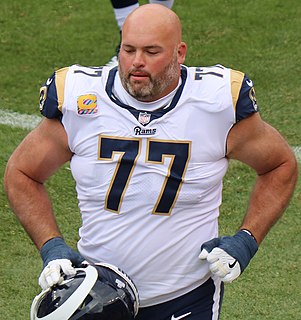A Quote by Gwen Stefani
People can say whatever they want to about me... and I don't get too affected. But I didn't want them to think I was a failure.
Related Quotes
I think the most important thing is to always be involved in every aspect of their life. To give them enough trust that they can share things with you. I don't want them to be terrified of me, you know? But I don't want them to think they can do whatever they want and get away with it, either, because they can't.
When you say 'I want to be an inspiring leader,' the operative phrase is 'I want.' This is inherently me-centered and self serving whether or not you recognise it. What you are really saying is 'I want to get people to do what I would like them to.' Perhaps they don't want to do that. So you have to somehow get them there.
I would say plotting is the most difficult thing for me. Characterization is only hard because sometimes I feel I get so interested in it that I want to talk too much about the characters and that slows the story down. So I say, "Hey, people want to find out what's going to happen next, they don't want to listen to you spout off about this or that person." But I think even the bad guy deserves to tell his side of the story.
It's not about pop culture, and it's not about fooling people, and it's not about convincing people that they want something they don't. We figure out what we want. And I think we're pretty good at having the right discipline to think through whether a lot of other people are going to want it, too. That's what we get paid to do.
The Sophists had this idea: Forget this idea of what's true or not—what you want to do is rhetoric; you want to be able to persuade the audience and have the audience think you're smart and cool. And Socrates and Plato, basically their whole idea is, "Bullshit. There is such a thing as truth, and it's not all just how to say what you say so that you get a good job or get laid, or whatever it is people think they want.
When we're talking about people not wearing clothes or being naked or whatever, that's a whole lot of people. And I said this: if that's their thing, and they feel comfortable doing that, then whatever; that works for them, but you don't have to go that route if you don't want to. We don't want people to think that that's what you have to do.
I think online, like on YouTube and stuff, people could pretty much say whatever they want. They have no filter in their brain, because no one knows who they are. They're totally anonymous, so they could say whatever they want. But when they're in person with me, they wouldn't say those things, because I can actually see who they are.
People think, for some reason, that I don't care about creativity and art, or helping people. So I would say that the biggest misconception is, when you think about me, when you think about my name, I don't want you to think about design or clothes or music. I want you to think about a person that's just trying to help people.
I want to be liked... No, I want to be more than just liked... I want people to say, "that Charlie Brown is a great guy!" And when people are at parties, I want them to look for me, and when I finally arrive, I want them to say, "here comes good ol' Charlie Brown... Now everything will be all right!" I want to be a special person... I want to be needed... It's kind of hard to explain... Do you understand? I mean, do you know what I'm talking about?" "Sure, I understand perfectly..." "Well?" "Forget it! Five cents, please!




































